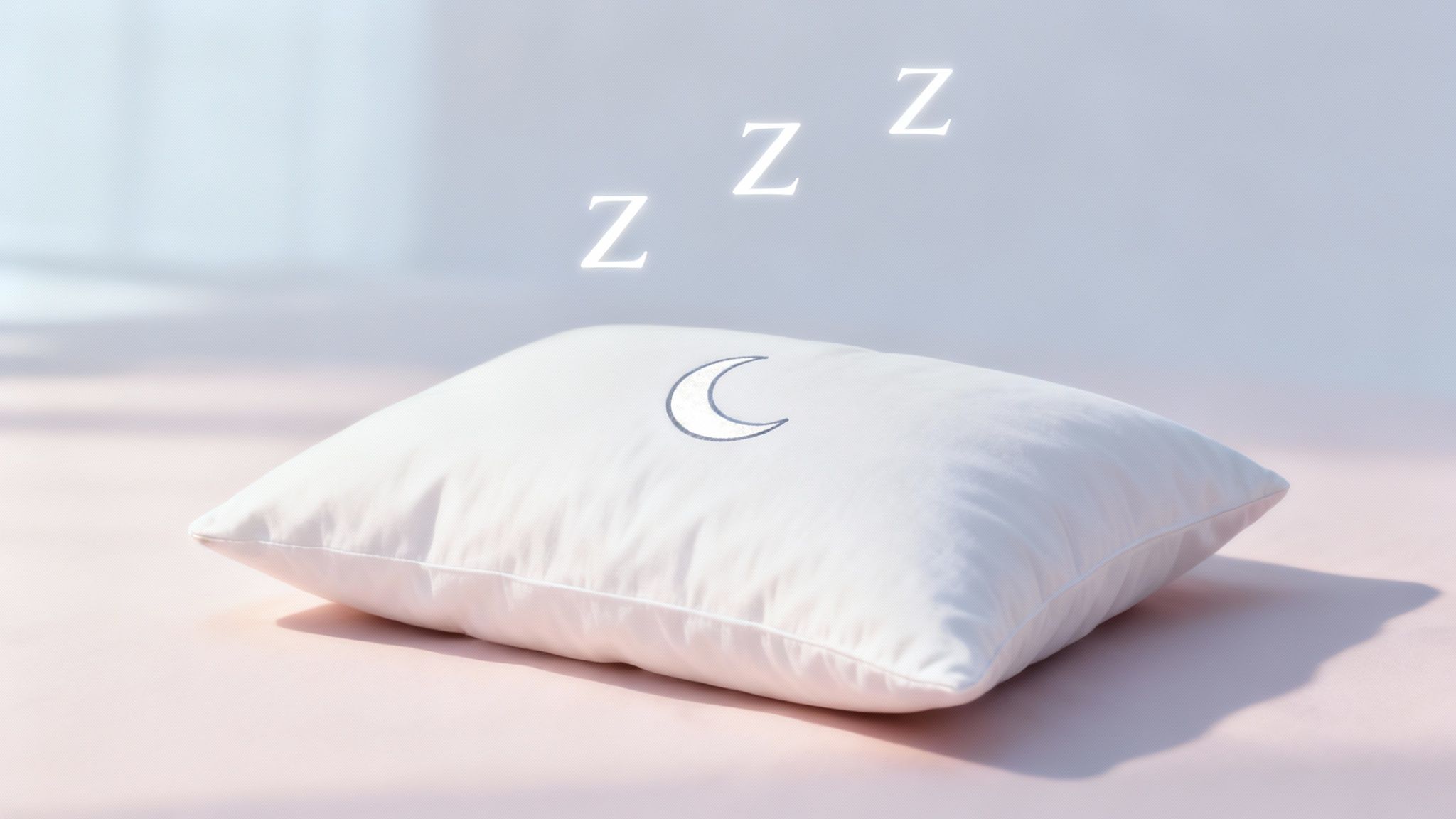In a world that constantly demands our attention, feeling perpetually drained has become the new normal for many in the UK. We often reach for another coffee or a sugary snack, seeking a temporary lift that frequently leaves us crashing later. But what if you could tap into a sustainable, vibrant source of energy without the jitters or the inevitable slump? True, lasting vitality isn't found at the bottom of an energy drink can; it's cultivated through deliberate, natural habits that work with your body, not against it.
This comprehensive guide moves beyond generic advice to explore 10 powerful, science-backed natural ways to boost energy. We will provide actionable strategies that harmonise with your body's innate rhythm. From the surprising benefits of cold exposure and strategic napping to optimising your nutrition and sleep hygiene, each point is designed for practical implementation. Prepare to discover how you can fundamentally reset your energy levels and reclaim your vitality for good, building a foundation for consistent, day-long vigour. This article will show you how to build a resilient energy reserve, helping you feel more focused, productive, and alive.
1. Master Your Hydration for Cellular Energy
Maintaining adequate water intake is one of the most fundamental yet overlooked natural ways to boost energy. Even mild dehydration, representing a mere 1-2% loss of your body's water, can trigger significant fatigue, impair cognitive function, and diminish physical performance. Water is the unsung hero of our internal power grid; it’s essential for cellular energy production (ATP synthesis), efficient nutrient transport, and regulating body temperature.

When your cells lack sufficient water, metabolic processes slow down, forcing your body to work harder to perform basic functions, leading to that all-too-familiar feeling of sluggishness. This is why elite athletes and even military personnel meticulously track their fluid intake to maintain peak operational readiness.
How to Implement Proactive Hydration
To harness the power of water for sustained energy, shift from reactive drinking (waiting until you're thirsty) to a proactive strategy. Thirst is a delayed signal that dehydration has already begun.
- Start Strong: Begin your day with a large glass of water to rehydrate your body after sleep.
- Keep it Visible: Carry a reusable water bottle with you throughout the day as a constant visual reminder to sip regularly.
- Check the Colour: Monitor your urine colour. A pale, straw-like yellow indicates good hydration, while darker shades suggest you need to drink more.
- Adjust for Activity: Increase your intake during exercise, in hot weather, or when consuming diuretics like caffeine and alcohol, as these can accelerate fluid loss. A good baseline for most adults is around 8-10 glasses (approximately 2 litres) daily.
2. Regular Physical Exercise
Engaging in consistent physical activity is a powerful, albeit counter-intuitive, method for boosting energy. While exercise expends energy in the short term, its long-term effect is a significant increase in your overall vitality. Regular movement enhances cardiovascular efficiency, improves oxygen circulation to your brain and muscles, and stimulates mitochondrial biogenesis, which is the creation of new energy-producing components within your cells.

This process effectively upgrades your body's internal power plants, leading to more sustained energy throughout the day. A landmark Stanford University study found that sedentary individuals who began a regular, low-intensity exercise programme reported a 65% improvement in fatigue levels. This demonstrates how even gentle activity can profoundly impact your energy.
How to Implement Consistent Movement
To make exercise a sustainable source of energy, focus on consistency rather than intensity, especially when starting out. The goal is to build a habit that energises you, not one that leads to burnout.
- Start Small: If you're currently sedentary, begin with just 10-15 minutes of moderate activity, like a brisk walk, each day.
- Schedule It: Treat your workout like an important appointment by scheduling it at the same time daily. Morning exercise is particularly effective for setting an energetic tone for the day ahead.
- Mix It Up: For optimal benefits, aim to include both cardiovascular exercise (running, cycling) and strength training in your weekly routine.
- Aim for the Guideline: Work towards the recommended 150 minutes of moderate or 75 minutes of vigorous exercise per week for substantial health and energy benefits. Even a quick 10-minute walk can provide an immediate lift when you feel a slump.
3. Quality Sleep Optimization (7-9 Hours)
Prioritising adequate, high-quality sleep is the non-negotiable foundation for natural energy. During sleep, your body performs critical maintenance: repairing tissues, consolidating memories, regulating hormones, and clearing metabolic waste from the brain. Chronic sleep deprivation sabotages these vital processes, leading to impaired glucose metabolism, elevated stress hormones, and a significant drain on your energy reserves.

This principle is championed by high-performers across all fields. Elite athletes like LeBron James and Roger Federer reportedly sleep 10-12 hours to ensure peak performance, while business leaders like Jeff Bezos prioritise eight hours for sharper decision-making. As sleep scientist Dr. Matthew Walker popularised in his book 'Why We Sleep', this restorative period is not a luxury but a biological necessity for both physical and mental vitality.
How to Implement Proactive Sleep Hygiene
To transform your sleep into a powerful energy-booster, you must create a consistent and relaxing nightly ritual. This signals to your brain and body that it's time to wind down, paving the way for deep, restorative rest. For those struggling to switch off, it may be beneficial to explore how certain supplements could help. Discover more about using CBD oil for insomnia on smokocbd.com.
- Maintain a Schedule: Go to bed and wake up at the same time every day, even on weekends, to regulate your body's internal clock.
- Create Your Sanctuary: Ensure your bedroom is dark, quiet, and cool (ideally 18-20°C). Use blackout curtains or a white noise machine if needed.
- Establish a Wind-Down Routine: Avoid screens for 1-2 hours before bed. Instead, try reading a book, gentle stretching, or meditating.
- Time Your Intake: Limit caffeine after 2 PM and avoid large meals or alcohol within three hours of bedtime, as they can disrupt sleep architecture.
- Get Morning Sunlight: Exposure to natural light shortly after waking helps to set and regulate your circadian rhythm, promoting alertness during the day and sleepiness at night.
4. Balanced Nutrition with Complex Carbohydrates and Protein
Fueling your body with a balanced diet is a cornerstone of any strategy for natural ways to boost energy. Consuming a strategic mix of complex carbohydrates, lean proteins, and healthy fats provides a steady, reliable energy supply by stabilising blood sugar levels. Unlike simple sugars found in processed foods that cause a rapid spike followed by a crash, complex carbohydrates release glucose gradually, preventing energy slumps.

This principle is validated by studies on the Mediterranean diet, where participants consistently report higher energy and reduced fatigue. Protein is equally vital, supporting muscle repair and promoting satiety, which helps prevent the overconsumption of energy-draining foods. A well-nourished gut microbiome is also key for nutrient absorption and energy production; a concept that ties directly into how our digestive system functions and its overall health. Find out more about how CBD oil and gut health are connected on smokocbd.com.
How to Implement a Balanced Nutrition Strategy
Adopting this approach doesn't require a complete dietary overhaul but rather a series of mindful, consistent adjustments to what and when you eat.
- Prioritise Protein: Aim to include 20-30 grams of lean protein with each meal from sources like chicken, fish, beans, or tofu to ensure sustained energy release.
- Choose Complex Carbs: Swap refined grains for whole foods such as oats, quinoa, sweet potatoes, and brown rice to avoid blood sugar instability.
- Eat Smaller, More Frequent Meals: Eating every 3-4 hours can help maintain stable glucose levels and prevent the lethargy associated with large, infrequent meals.
- Include Healthy Fats: Incorporate sources like avocados, nuts, and olive oil to enhance satiety and aid in the absorption of fat-soluble vitamins essential for energy.
- Front-Load Your Calories: Consume the majority of your daily calories earlier in the day when your energy demands are at their peak.
5. Strategic Caffeine Consumption
When used thoughtfully, caffeine from natural sources like coffee, green tea, or matcha is a powerful tool to enhance energy, alertness, and cognitive performance. This well-known stimulant works by blocking adenosine receptors in the brain, the chemical that signals sleepiness. It also increases dopamine signalling and stimulates the central nervous system, leading to a noticeable boost. The secret to harnessing its benefits without the drawbacks lies in strategic timing, dosage, and avoiding dependency.
This methodical approach is why military personnel use caffeine to maintain alertness during critical operations, and elite athletes use it as a legal performance enhancer. The key is to treat it as a tactical tool rather than a constant crutch, which is a core principle in finding sustainable, natural ways to boost energy.
How to Implement Strategic Caffeine Use
Moving beyond habitual consumption to a more mindful approach allows you to maximise caffeine's benefits while minimising tolerance and sleep disruption. Neuroscientists like Dr. Andrew Huberman have popularised optimising intake for peak brain function.
- Delay Your First Cup: Wait 90-120 minutes after waking before your first coffee. This allows your body’s natural cortisol peak to pass, making the caffeine more effective later.
- Set a Cut-Off Time: Avoid all caffeine within 8-10 hours of your intended bedtime to protect your sleep quality, as its effects can linger long after you feel them.
- Mind Your Dosage: Limit your total daily intake to a moderate 200-400mg, which is roughly 2-4 standard cups of coffee.
- Consider a 'Caffeine Nap': For a potent boost, drink your coffee or tea and immediately take a 20-minute nap. You’ll wake up as the caffeine kicks in, feeling doubly refreshed.
- Cycle Your Intake: To prevent building a tolerance, try a cycle like five days on and two days off. This helps reset your sensitivity.
6. Cold Exposure Therapy for an Instant Surge
Deliberately exposing your body to cold is a powerful and ancient practice, one of the most immediate natural ways to boost energy. A brief immersion in cold water triggers a cascade of physiological responses, activating the sympathetic nervous system and releasing a surge of norepinephrine. This powerful neurotransmitter sharpens focus, elevates mood, and drastically increases alertness, providing an effect similar to a shot of adrenaline but without the subsequent crash.
This invigorating shock to the system also enhances circulation as your body works to maintain its core temperature. This process isn't just a fleeting sensation; advocates like extreme athlete Wim Hof and neuroscientist Dr Andrew Huberman highlight its role in improving mitochondrial function and building mental resilience. Regular cold exposure trains your body to handle stress more effectively, translating into sustained energy and vitality throughout your day.
How to Implement Controlled Cold Exposure
Integrating cold therapy doesn't require an extreme ice bath from the outset. You can ease into the practice to build tolerance and reap the benefits safely.
- Start with Contrast Showers: End your normal warm shower with just 30 seconds of cold water. Focus on your breathing to manage the initial shock.
- Gradually Increase Duration: Over several weeks, slowly extend your cold exposure time, aiming for 2-3 minutes. Consistency is more important than intensity.
- Focus on the Morning: A cold blast in the morning is most effective for setting an energetic tone for the entire day, replacing the need for that first coffee.
- Breathe Through It: The key to managing the cold is controlled, steady breathing. Inhale deeply through the nose and exhale slowly through the mouth to calm your nervous system’s fight-or-flight response.
- Warm Up Naturally: After exposure, avoid jumping into a hot shower. Allow your body to warm up gradually by drying off and putting on warm clothes. This helps prolong the metabolic benefits.
7. Mindfulness Meditation and Breathwork
Cultivating mental stillness through mindfulness and conscious breathing is a powerful, yet often underestimated, natural way to boost energy. Chronic stress is a significant energy drain, keeping the body in a state of high alert and depleting vital reserves through elevated cortisol levels. Mindfulness meditation and targeted breathwork activate the parasympathetic nervous system, our body's "rest and digest" mode, which conserves energy and promotes deep recovery.
This practice isn't just about relaxation; it’s about improving mental efficiency. By calming the mind's chatter, you enhance focus and reduce the mental fatigue that comes from constant overthinking. Elite performers from Navy SEALs, who use box breathing to stay calm under pressure, to top athletes like Novak Djokovic, leverage these techniques to maintain peak mental energy and accelerate physical recovery. It's a strategic method to recharge your internal battery.
How to Implement Mindful Energy Practices
Integrating mindfulness doesn't require hours of silence; even a few focused minutes can reset your energy levels. Consistency is more important than duration.
- Start Small: Dedicate just five minutes each morning to a simple meditation. Sit comfortably, close your eyes, and focus solely on the sensation of your breath.
- Try Box Breathing: For a quick mental reset, inhale for four counts, hold your breath for four, exhale for four, and hold again for four. Repeat this cycle 3-5 times.
- Use Guided Apps: If you find it difficult to start on your own, apps like Calm or Headspace provide structured guided meditations tailored for energy and focus.
- Combine with Other Habits: Practice mindfulness while engaging in other restorative activities. This approach can be particularly beneficial for managing persistent fatigue, as seen in complex conditions like long Covid. You can find more information about using CBD oil to treat long Covid in our detailed guide.
8. Harness Natural Sunlight to Regulate Your Body Clock
Exposing yourself to natural sunlight, especially in the morning, is a powerful and free way to boost energy. This simple act helps to anchor your body's internal clock, known as the circadian rhythm, which governs your sleep-wake cycle. Morning light signals to your brain that the day has begun, suppressing the sleep hormone melatonin and triggering the release of cortisol and serotonin for alertness and an improved mood.
This biological mechanism is so potent that it’s leveraged in clinical settings. For instance, light therapy is a primary treatment in Scandinavian countries to combat the fatigue associated with seasonal affective disorder (SAD). Similarly, modern office designs and healthcare facilities increasingly prioritise natural light to enhance alertness, productivity, and patient recovery, underscoring its vital role in our daily energy patterns.
How to Implement Strategic Light Exposure
To effectively use sunlight as one of the best natural ways to boost energy, you need to be intentional about the timing and duration. The goal is to send a clear, consistent signal to your internal clock.
- Aim for Morning Light: Get 10-30 minutes of direct sunlight within the first two hours of waking. This has the most significant impact on setting your circadian rhythm for the day.
- Embrace Cloudy Days: Even on an overcast day, the outdoor light is significantly more powerful than typical indoor lighting. Make an effort to get outside regardless of the weather.
- Take Outdoor Breaks: Step outside for a few minutes during your workday, particularly if you feel a midday slump. This can help reinforce your body's daytime alertness signals.
- Work Near a Window: If you're stuck indoors, position your workspace near a window to maximise your exposure to natural daylight.
- Ditch the Shades (Briefly): For maximum benefit during your morning sun session, avoid wearing sunglasses to allow the light to directly enter your eyes and stimulate the critical receptors in your retina.
9. Adaptogenic Herbs and Natural Supplements
Harnessing the power of adaptogens offers one of the most sophisticated natural ways to boost energy by helping your body become more resilient to stress. These unique herbs and fungi don't act like stimulants; instead, they work by modulating your body's stress-response system (the HPA axis) and supporting adrenal function. This helps prevent the energy crashes associated with both chronic stress and traditional stimulants like caffeine, leading to a more stable and sustainable energy supply.
The mechanism behind their effectiveness lies in their ability to support mitochondrial function, the powerhouses of your cells, enhancing overall vitality. From ancient Ayurvedic and Traditional Chinese Medicine practices to modern biohackers and athletes seeking a competitive edge, adaptogens like Rhodiola rosea, Ashwagandha, and Cordyceps have been used for centuries to enhance endurance, focus, and overall life force.
How to Implement Adaptogens Safely
Integrating adaptogens requires patience and consistency, as their benefits accumulate over time. Unlike a quick caffeine hit, they build a foundation for long-term energy resilience.
- Start Singularly: Begin with a single adaptogen to assess how your body responds before trying a blend.
- Prioritise Quality: Choose reputable brands that provide third-party testing for purity and potency (look for certifications like NSF or ConsumerLab).
- Time it Right: Take adaptogens in the morning or early afternoon to support your daily energy cycle and avoid any potential interference with sleep.
- Be Patient: Commit to taking your chosen adaptogen consistently for at least 2-4 weeks to notice tangible improvements in your energy and stress levels.
- Consult a Professional: Always speak with a healthcare provider before starting any new supplement, especially if you are pregnant, breastfeeding, or taking prescription medications.
10. Power Napping (10-20 Minutes)
Strategic, short naps are one of the most effective natural ways to boost energy and reset your mental state. A brief 10-20 minute power nap can significantly improve alertness, enhance cognitive performance, and restore productivity without causing the grogginess (sleep inertia) associated with longer rests. This practice leverages the body’s natural midday energy dip to provide a powerful recharge.
This isn’t just a folk remedy; it's a proven performance enhancer. A landmark NASA study found that a 26-minute nap improved pilot performance by 34% and alertness by 54%. Similarly, leading companies like Google and Nike have installed nap pods, recognising that a well-rested employee is a more creative and productive one.
How to Implement a Power Nap
Mastering the power nap involves timing and discipline. The goal is to get the restorative benefits of sleep without falling into the deeper sleep stages that are hard to wake from.
- Time it Right: Aim to nap between 1-3 PM, when your circadian rhythm naturally causes a dip in alertness. Napping after 4 PM can interfere with your nighttime sleep.
- Keep it Short: Set an alarm for 10-20 minutes. This is the optimal window to refresh your mind without entering deep sleep and waking up groggy.
- Create a Restful Environment: Find a quiet, dark, and comfortable space. Using an eye mask and earplugs can help you disconnect and fall asleep more quickly.
- Try a "Caffeine Nap": Drink a cup of coffee or tea immediately before your 20-minute nap. The caffeine will take about 20 minutes to take effect, so you'll wake up with a dual boost of energy from both the rest and the stimulant.
Natural Energy Boosting Methods Comparison
| Method | Implementation Complexity 🔄 | Resource Requirements ⚡ | Expected Outcomes ⭐📊 | Ideal Use Cases 💡 | Key Advantages ⭐ |
|---|---|---|---|---|---|
| Proper Hydration | Low – requires consistent attention | Minimal – access to clean water | Immediate energy boost; improved focus | Daily energy maintenance; athletes; office workers | Accessible, no side effects, supports all bodily functions |
| Regular Physical Exercise | Moderate – needs time & consistency | Moderate – time, space, possibly equipment | Both immediate and long-term energy increase | General wellness; fatigue reduction; mental clarity | Improves cardiovascular health, mental wellbeing, sleep quality |
| Quality Sleep Optimization | Moderate – needs lifestyle changes | Low – environment control (dark, cool room) | Powerful energy restoration; cognitive enhancement | Anyone needing sustained natural energy recovery | Most potent natural energy restoration; improves immune function |
| Balanced Nutrition | Moderate – requires meal planning | Moderate – cost and access to quality foods | Stable energy levels; improved physical & mental performance | Anyone aiming for sustained energy and health | Prevents energy crashes; supports metabolism & focus |
| Strategic Caffeine Consumption | Low to Moderate – timing & dosing | Low – common availability of coffee, tea | Fast-acting alertness; improved exercise performance | Short-term alertness boosts; productivity peaks | Quick effects; socially accepted; cognitive benefits |
| Cold Exposure Therapy | Moderate to High – requires mental fortitude | Minimal – water and temperature control | Immediate energizing effect; improved mood and metabolism | Mental resilience; acute energy boost; recovery | Increases norepinephrine; enhances mood and metabolism |
| Mindfulness Meditation & Breathwork | Moderate – needs practice & discipline | None – can be done anywhere | Reduced stress; enhanced focus and mental energy | Stress management; improving mental clarity | Immediate and cumulative cognitive and emotional benefits |
| Natural Sunlight Exposure | Low – requires time outdoors | None – access to sunlight | Circadian rhythm regulation; improved mood and alertness | Office workers; people with low natural light exposure | Free; regulates sleep-wake cycle; boosts vitamin D |
| Adaptogenic Herbs & Natural Supplements | Moderate – consistent supplementation | Moderate – cost, quality varies | Sustained energy improvement; stress resilience | Chronic fatigue; stress-related low energy | Supports adrenal health; minimal crashes; cumulative benefits |
| Power Napping (10-20 Minutes) | Low – needs appropriate timing | Minimal – quiet, comfortable space | Immediate alertness boost; improved cognitive performance | Workplace energy dips; shift workers; poor nighttime sleep | Quick recharge; improves performance; easy to implement |
Crafting Your Personal Energy Toolkit
Navigating the path to sustained vitality can feel overwhelming, but as we've explored, the solution isn't a single, elusive secret. Instead, it lies in assembling a personalised toolkit of habits. This collection of natural ways to boost energy works synergistically, with each practice amplifying the effects of the others. Mastering these strategies is not just about overcoming tiredness; it's about reclaiming your focus, enhancing your mood, and building the resilience needed to thrive in every aspect of your life.
The journey begins not with a radical overhaul, but with small, intentional choices. Think of your energy as a bank account. Each positive action, from a glass of water upon waking to a ten-minute walk in the midday sun, is a deposit. Over time, these consistent deposits create a substantial reserve of vitality that you can draw upon when you need it most.
Key Takeaways for Lasting Vitality
Let's recap the core principles for building your energy reservoir:
- Foundational Pillars: Prioritise the non-negotiables first. Quality sleep (7-9 hours), consistent hydration, and a balanced diet rich in complex carbohydrates and proteins form the bedrock of your energy production. Without these, other efforts will have a limited impact.
- Movement is Medicine: Regular physical activity, from brisk walks to structured workouts, is one of the most powerful natural ways to boost energy. It enhances circulation, improves sleep quality, and releases mood-lifting endorphins, creating a positive feedback loop of vitality.
- Mindful Management: Chronic stress is a primary drain on your energy. Integrating practices like mindfulness meditation, deliberate breathwork, and even short bursts of cold exposure can regulate your nervous system, transforming your stress response and preserving your precious energy stores.
- Sync with Nature: Your body is designed to follow natural rhythms. Getting morning sunlight exposure helps to set your internal clock, while strategic power naps can provide a powerful reset without disrupting your nightly rest.
Your Actionable Next Steps
The most effective approach is a gradual and personalised one. Don't try to implement all ten strategies at once. Instead, choose one or two that feel most achievable and resonant for you right now.
Perhaps you could start by placing a bottle of water by your bed to hydrate first thing in the morning. Or maybe you can commit to a 15-minute walk during your lunch break to soak up some natural light. Once that new habit feels automatic, you can layer another one on top. This incremental approach builds momentum and makes sustainable change feel effortless. By consistently applying these natural ways to boost energy, you empower yourself to build a foundation of lasting wellness and vigour.
As you build your personal energy toolkit, consider how high-quality, natural supplements can support your goals. For those seeking to enhance their sleep quality, manage daily stresses, and support physical recovery, SMOKO CBD offers a trusted range of CBD Oils and Gummies that can complement your holistic wellness routine. Explore how our products can help you find balance at SMOKO CBD.









